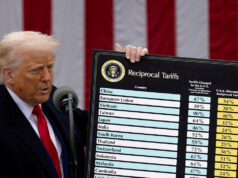Exporters focus on local market
PHILIPPINE exporters are pushing for local consumers and businesses to prioritize their products as they shift to the domestic market while recovering from the effects of the pandemic.
Philexport President Sergio R. Ortiz-Luis Jr. said in a phone interview on Thursday that companies are temporarily focusing on the domestic market as long as businesses are unable to resume operations at full capacity, which he estimated could last a year.
“During this pandemic time, mukhang maraming kumpanya na kailangan tulungan, lalo na ‘yung mga supplier na maliliit. Encourage ko sila na ituloy ang negosyo.” (It looks like there are plenty of companies that need help, especially small suppliers. We encourage them to continue their business).
He emphasized that the move is temporary as industries recover, and is not intended to discourage the importation of products. But he also said that goods produced in the country should be prioritized.
“‘Yung mga namimiling mga kumpanya rito na nagbubukas, unahin na muna ‘yung mga local para matulungan nila. Lalo na ‘yung maliliit. Dun na muna sila bumili.” (For companies that are opening up, they should prioritize local business first to help them. Especially the small ones. They should buy there.”
He listed food items, clothes, and face masks as items that can be produced locally.
Some exporters have already shifted production to personal protective equipment, including face masks and cleanroom suits.
Philippines trade declined in April, with merchandise exports falling by 50% year-on-year, according to the Philippine Statistics Authority. Merchandise imports also fell 65%.
“It will take time to recover,” Mr. Ortiz-Luis said, explaining that companies are not able to operate at full capacity and are facing diminished market consumption.
He said he cannot measure local demand at this time, but believes that the move would significantly help companies.
“The demand is low. Dahan-dahan. We’re hoping na kahit low yung demand, unahin muna ‘yung local.” (Slowly. We’re hoping that even though demand is low, they’ll buy local first). — Jenina P. Ibañez



